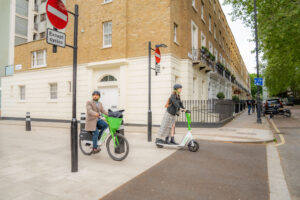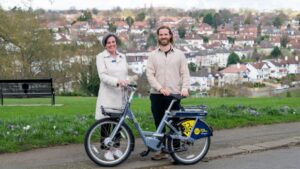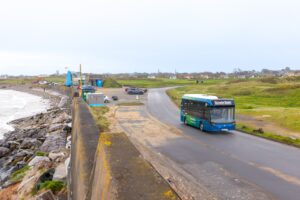Integration is the key to sustainable transport systems, says report
Civic leaders and planners will need to take a more integrated and tech-savvy approach if they are to develop sustainable transport systems, a new report has claimed.
The report by the international consultancy PwC, outlines a ‘total appraisal’ method, which it says will help policymakers understand the economic, social and environmental impacts, instead of using a traditional benefit-cost ratio (BCR) approach to decide if an infrastructure project should go ahead.
The report warns that a large number of current transport systems cannot meet the needs of rapidly growing populations, particularly when it comes to safety, security and accessibility.
It states planners will need to develop transport systems which make a ‘major contribution to improving the lives of people in all types of communities’, while at the same time ‘making it possible to deliver the benefits of economic growth in a sustainable, inclusive way’.
‘Transportation needs are increasing all over the world and while the focus of developed and developing nations may differ, it’s clear that if these growing demands are to be met in a sustainable and connected way, a new future-focused and integrated approach is needed,’ said PwC director, Daniel Hanson.
‘Using a total appraisal approach that captures all of the various direct and indirect impacts of a project and views a project clearly and consistently through the complementary lenses of welfare (or BCRs) and GDP impacts can reflect the true value and impact of projects, ultimately improving decision making and outcomes for all.’
Building more roads ‘amplifies’ problems
According to PwC, more than US$14 trillion will be spent on global transport infrastructure by 2025.
The report cites the example of Jakarta in Indonesia, which has a population of more than 10 million in the city itself and a total of 30 million in the surrounding region.
It says the streets of Jakarta are ‘perpetually clogged’ with cars, taxis and pedestrians. The public transport system is ‘woefully overcrowded’ and ‘poorly laid out to meet the needs of its population’.
The report adds the city also faces other issues, such as poor air quality, housing shortages and massive flooding.
‘Simply building more roads, airports and even public transportation systems can amplify, rather than solve, the environmental and economic problems that come with urban growth,’ the report states.
‘Overcoming these challenges will require that planners take the best of the approaches and techniques they have used in the post and then rapidly develop them to better assess the wide-ranging and interrelated impacts of infrastructure on the economy and on society.’
It adds emerging sources of data – such as freight movement and navigation systems – will also be crucial to developing better-connected transport systems.
‘Over the next few years, we’ll see a technological revolution in transportation that will not only affect individual and commercial users, but will inevitably drive new approaches by regulators, funders and policymakers,’ said PwC senior executive director, Edward Clayton.
‘Decisions made now will lock in the future shape of transport so it is vital that cities and nations get it right. Closer collaboration between governments, academics, systems developers, investors and users, will go a long way towards this goal.
‘Ultimately, however, the most important ingredient will be a clear vision of what a user-centred transport system will look like, what’s needed to build and maintain it, and how to appraise it in a way that takes into account the total impact of the investments and policies under consideration,’ added Mr Clayton.
Photo by basibanget 












